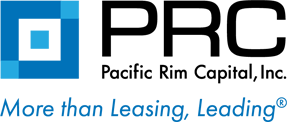As you are investigating your equipment financing options, you will be faced with the choice of purchasing or leasing the assets.
Since each company has its own requirements, it is important to know which option best fits your needs.
So how do you decide? By way of analogy, think of buying or leasing a new car.
When you are looking into getting a new car, you must determine your intent and ideal outcome. Are you looking for a long-term investment? Will you take the time or have the finances to keep the car maintained? Will you be putting a large number of miles on the car or using it to commute? If so, purchasing a car may be a better option for you since you are willing to put the time, energy, and finances into maintaining and using the car.
But, on the other hand, you may not want to provide a large down payment and tie up your cash. You may not want to pay for maintenance. You may even just like the idea of refreshing your car and receiving a new one every few years. In this case, you would be much better off leasing a car instead of purchasing.
There are pros and cons in either scenario. When you purchase a car, you own the asset yourself and increase your net worth. When you lease a car, you don’t own the asset and thus are subject to special provisions on that asset.
Your choice to lease or purchase the car fully depends on your intent and how you plan on using the car. The same goes for material handling equipment. Depending on your intended usage, one choice will clearly be the right one for your business. But what are the benefits of each choice and how do you know which is right?
The Benefit of Leasing Equipment
As with a car, leasing material handling equipment is best suited for companies who are looking to focus on their core business, maximize their working capital, and lowering their total costs. Leasing allows companies to hedge against technological obsolescence. Think about computers – why would you want to own a computer for seven years if it will be obsolete in three?
Leasing equipment is a good choice for companies who do not want to put the time or money into maintaining the equipment past the economic useful life of the asset. After a certain number of hours of use, the asset becomes more costly to maintain than it is worth. This can negatively impact operational efficiencies and your company would be better off replacing the equipment instead. Read more about the economic Useful Life of Equipment by clicking the button below.
The Benefit of Purchasing Equipment
If you intend to own or use the asset past its economic useful life or require a piece of extremely rare, unique, or highly specialized equipment—or just like to spend cash—then it may make sense to purchase the asset or to finance through a capital lease.
Purchasing an asset would make sense for companies who have the time or finances to keep up with the equipment they use. If these companies know that they will be using the equipment to produce products that will not become obsolete and the assets will continue to be beneficial beyond their economic useful life, then purchasing might be a better option.
How to Choose
As you are looking at the pros and cons of leasing or purchasing your assets, you must recognize what your intent is for the use of the asset. If you intend to refresh your assets or you need new equipment to stay relevant, then leasing will be the better option for you.
Do you have cash flow or liquidity issues? Do you want to focus on your core business? Then leasing might be your best option.
If you do not mind spending money and administrative resources in managing equipment, then purchasing might be your better option.
Once you determine which option is best for you, you can then choose the right financier for your lease, loan, or purchase.

